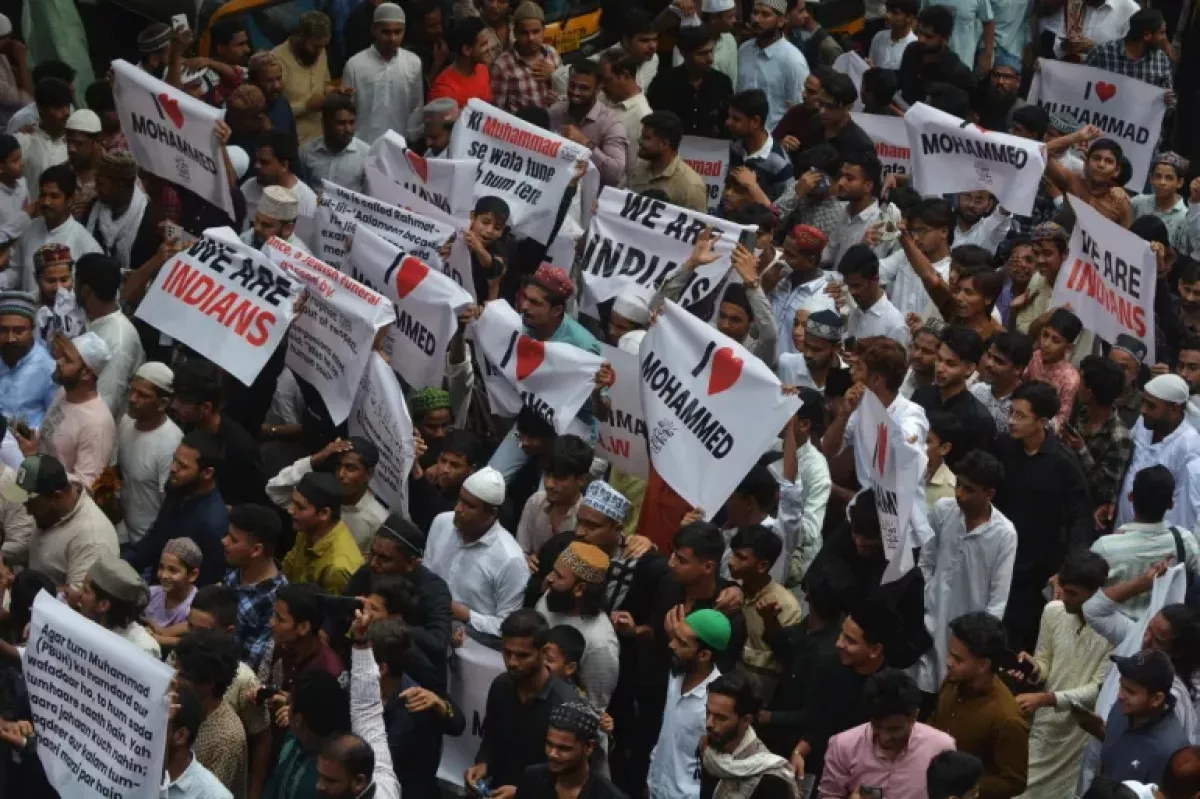India cracks down on "I love Muhammad" expression, over 2,500 charged PHOTO
Indian authorities have arrested dozens of Muslims and charged more than 2,500 individuals over public expressions of devotion to Prophet Muhammad, marking a widening crackdown in BJP-governed states.
The arrests follow the display of “I Love Muhammad” posters and social media posts, which authorities claim threaten “public order,” Caliber.Az reports via foreign media.
The controversy began on 4 September in Kanpur, Uttar Pradesh, during Eid al-Milad al-Nabi, when an illuminated board reading “I Love Muhammad” drew complaints from some local Hindus. Police filed cases against two dozen people under charges of promoting religious enmity, carrying up to five years in jail.

Protests quickly spread nationwide, with demonstrations in Telangana, Gujarat, Maharashtra, Uttarakhand, and Jammu and Kashmir. In Bareilly, Uttar Pradesh, clashes between police and protesters led to 75 arrests, including local imam Tauqeer Raza, and at least four homes of the accused were bulldozed.
India’s constitution guarantees freedom of religion and speech. Nadeem Khan, national coordinator of the Association for Protection of Civil Rights, said, “They know that there is no law that criminalises just the mere expression of ‘I Love Muhammad’.”
Amnesty International India chair Aakar Patel added, “Targeting people for slogans such as ‘I Love Muhammad’, which is peaceful and devoid of any incitement or threat, does not meet the threshold for criminal restriction under either Indian constitutional law or international human rights law.”
Critics see the crackdown as part of a broader pattern of marginalisation of Muslims since Prime Minister Narendra Modi came to power in 2014. Political analyst Asim Ali noted, “Any expression of religious identity, especially of Muslims, can be seen as inciting religious hatred.”
Rasheed Kidwai, political analyst, said, “The row over ‘I Love Muhammad’ is overtly very political, and not religious,” highlighting concerns over its impact on young Muslims.
By Aghakazim Guliyev








